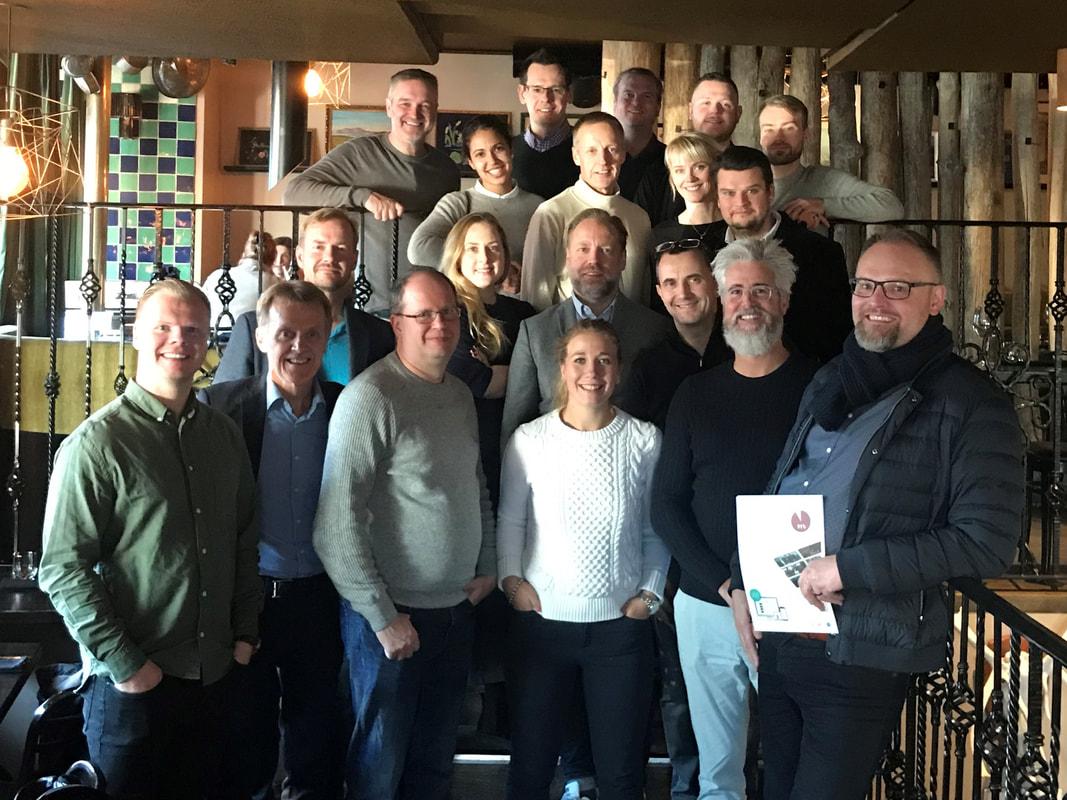
FiBAN organizes annually study trips to other ecosystems to get inspiration, learn about new trends and ways of working in startup ecosystem, as well as to enable FiBAN members to connect with other members from other business angel networks. In the past couple of years we have visited Copenhagen, Israel and Amsterdam, to name a few. This time it was Iceland’s turn, the land of ice and fire and great startup initiatives.
In the past, Iceland was mainly known as one of the world’s leading fishing industry countries, as well as it’s boom as a tourist attraction. There was a lot of waste coming from the fishing industry, as local fishers were used to only use the fillet from the fish. Now, there’s a whole cluster, Iceland Ocean Cluster, which fosters all companies developing new implementations and technologies related to ocean. The angel delegation stayed for a whole day at the cluster, learning about how almost all parts of fish can be used in health tech, beauty industry, fashion, and so on. This rides on top of the trend of circularity, where everything from scales to fish intestines are used.
However, to enable new industries to boom, Iceland has seen a surge of VC funding in the past few years. FiBAN met with all major VC funds in Iceland, including Crowberry Capital, New Business Venture Fund, Brunnur Ventures, and Eyrir Invest. Also supporting other technologies, the delegation visited a Fintech Cluster, which hosts a lot of companies disrupting the banking industry, as Iceland has been it’s ups and downs with its banking sector.
All the ecosystem players in Iceland are more or less looking into collaboration projects outside of Iceland, be it deal flow, go-to-market or co-investors. The reason being that there’s a lack of both investment and human capital in a relatively small country. Also, a lot of young Icelanders decide to study abroad, especially in the US, due to the lack of universities in Iceland, making them more international from the get-go. Tuomas Pahlman, co-lead of the current Nordic Angel Program by FiBAN, recognized the mentality: “I was positively surprised how the location and isolation affected the startup quality. As the island is so small, the mentality is that everyone needs to do their part, they simply cannot upkeep freeriders.Then again if you want to build a meaningful business, the Icelandic market is too small, so you have go over the sea. These combined, Iceland practical forces startups to build a great stuff and go global. ”
Maybe to a surprise, many of those studying or working in the US decide to move back to Iceland: including Gummi Hafsteinsson, business angel who has worked with projects such as Google Maps and Siri. Hafsteinsson now works as a board professional to a lot of Icelandic ecosystem organizations, giving back to the ecosystem after residing in the US for fifteen years. In the end, Icelandic brain drain is far weaker than the brain gain.
To learn more about other ecosystems, join our mailing list for future FiBAN study trips – next one coming in spring 2020!
Photos & text: Reetta Ilo, International Affairs Manager
The Nordic Angel Program is cofinanced by the European Commission’s Startup Europe initiative under the Horizon 2020 programme